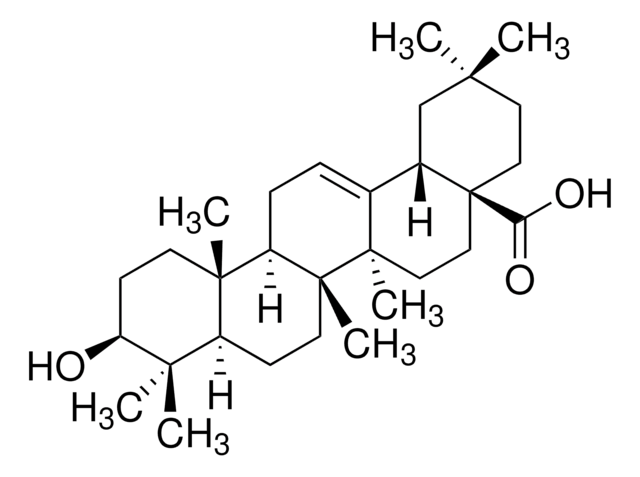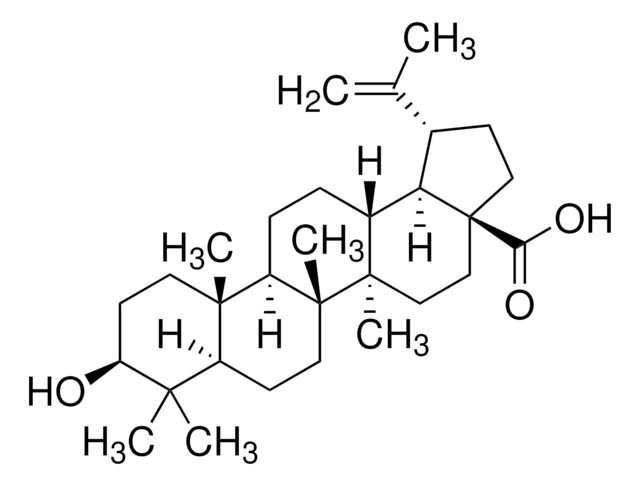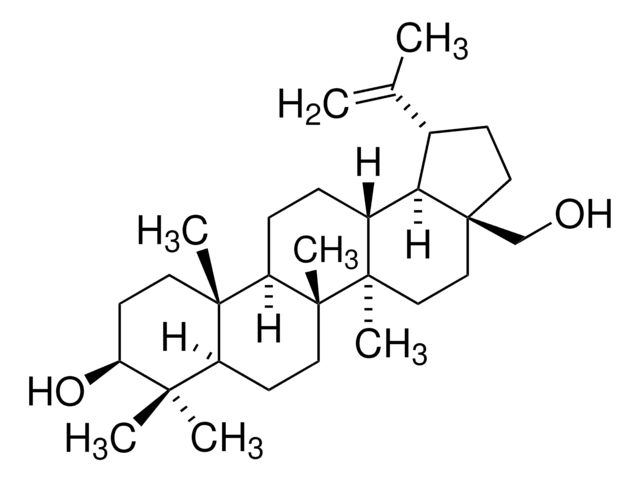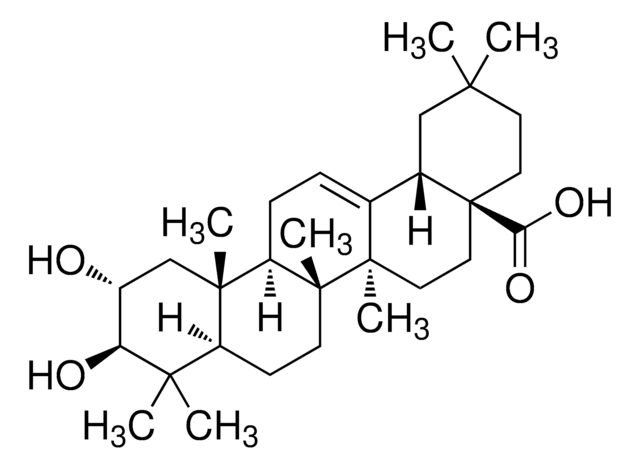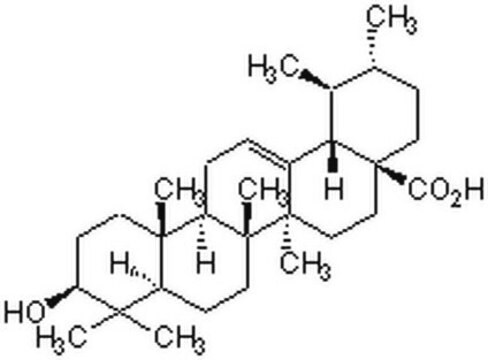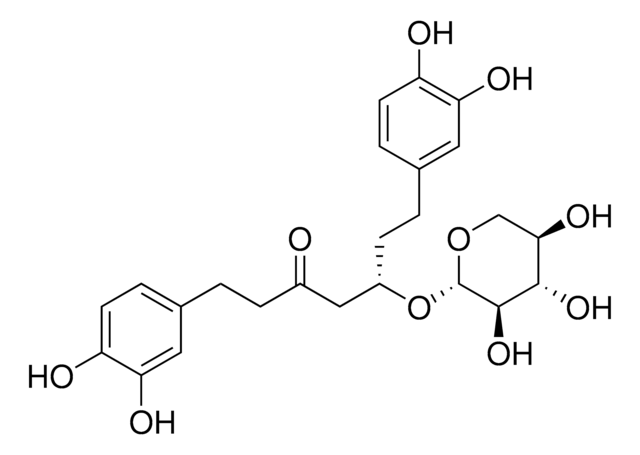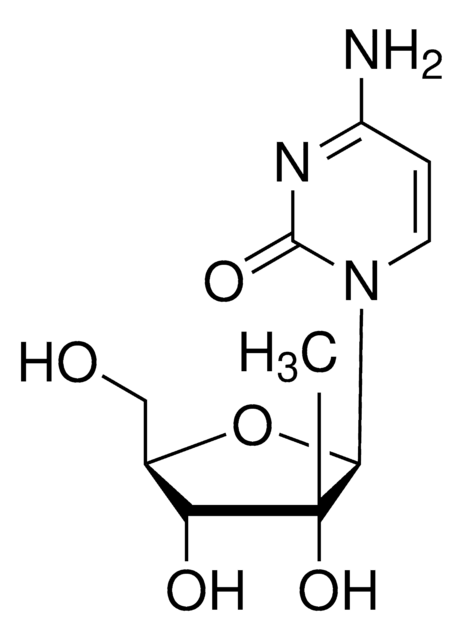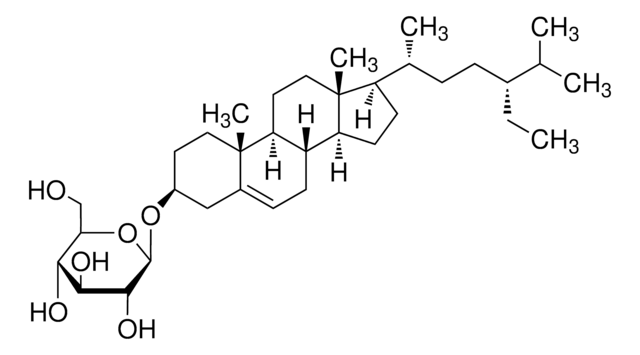855057
Betulinic acid
technical grade, 90%
Synonym(s):
3β-Hydroxy-20(29)-lupaene-28-oic acid, Lupatic acid, Mairin
About This Item
Recommended Products
grade
technical grade
Quality Level
Assay
90%
form
powder
optical activity
[α]20/D +7.8°, c = 0.9 in pyridine
mp
295-298 °C (dec.) (lit.)
functional group
carboxylic acid
hydroxyl
storage temp.
2-8°C
SMILES string
CC(=C)[C@@H]1CC[C@@]2(CC[C@]3(C)[C@H](CC[C@@H]4[C@@]5(C)CC[C@H](O)C(C)(C)[C@@H]5CC[C@@]34C)[C@@H]12)C(O)=O
InChI
1S/C30H48O3/c1-18(2)19-10-15-30(25(32)33)17-16-28(6)20(24(19)30)8-9-22-27(5)13-12-23(31)26(3,4)21(27)11-14-29(22,28)7/h19-24,31H,1,8-17H2,2-7H3,(H,32,33)/t19-,20+,21-,22+,23-,24+,27-,28+,29+,30-/m0/s1
InChI key
QGJZLNKBHJESQX-FZFNOLFKSA-N
Looking for similar products? Visit Product Comparison Guide
General description
Biochem/physiol Actions
Storage Class Code
11 - Combustible Solids
WGK
WGK 3
Flash Point(F)
Not applicable
Flash Point(C)
Not applicable
Personal Protective Equipment
Choose from one of the most recent versions:
Already Own This Product?
Find documentation for the products that you have recently purchased in the Document Library.
Customers Also Viewed
Articles
Chronic inflammation is an underlying factor in the development and progression of many of the chronic diseases of aging, such as arthritis, atherosclerosis, diabetes, and cancer.
Our team of scientists has experience in all areas of research including Life Science, Material Science, Chemical Synthesis, Chromatography, Analytical and many others.
Contact Technical Service